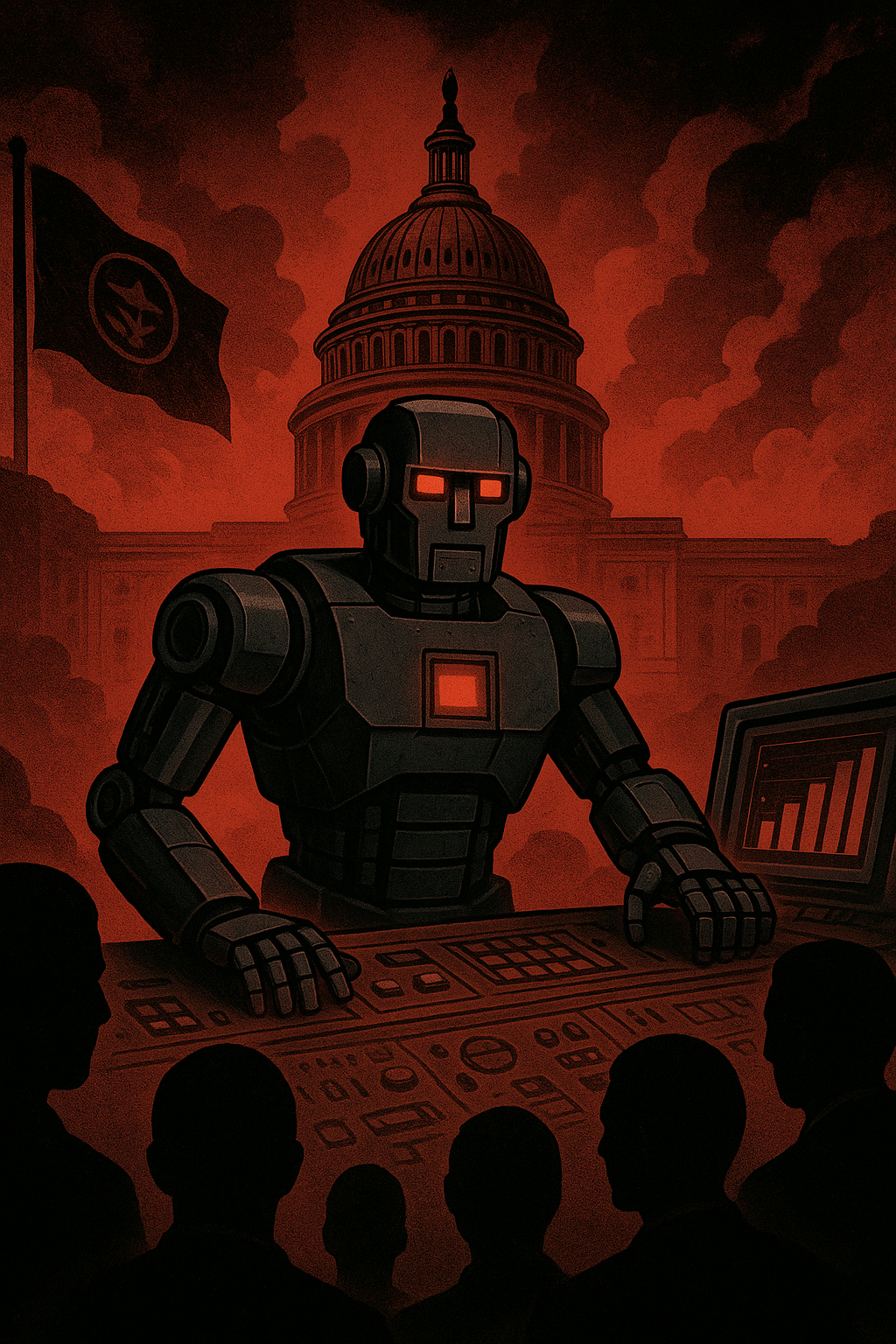
Suffrage Is the Catalyst to Change
Suffrage Is the Catalyst to Change
I've been watching the government shutdown unfold, and I need to tell you what I'm actually seeing here.
The mainstream media wants you panicking about 42 million Americans losing SNAP benefits. They're painting this as a humanitarian crisis. They're showing you crying families and empty refrigerators.
I'm seeing something different.
The Dependency We Built
Nearly 60% of SNAP recipients have been on the program for more than a year. Almost half have been receiving benefits for 20 months or longer.
This was supposed to be temporary assistance. It became a way of life.
In fiscal year 2024, we spent $99.8 billion on SNAP. That's 12.3% of all Americans dependent on government food assistance. The system wasn't designed to support this many people indefinitely. The math doesn't work.
Our federal spending averages 24% of GDP while revenues average only 18%. Every dollar of discretionary spending Congress appropriates is borrowed money. We're adding $68,902 to the debt every single second.
The house of cards was always going to fall.
When Systems Break
This marks the first time in SNAP's history that benefits have been suspended. The system that was "too big to fail" just failed.
I'm not celebrating that families are struggling. I'm recognizing that this exposes a truth we've been avoiding for decades.
Government programs create dependency by design. When you need the government to survive, you vote to keep that government in power. The cycle is intentional.
Breaking that cycle hurts. I understand that. But you know what else hurts? Raising generations of Americans who don't know how to be self-sufficient. Who've never had to figure things out. Who believe survival requires government permission.
The Numbers Don't Lie
In some states, the fraud is staggering. Alaska reported 57% of food stamp payments as improper in fiscal year 2022. Maryland hit 35.6%. Oregon reached 23%.
Over half of all payments in Alaska were fraudulent or improper. We're supposed to believe cutting this program is the problem?
The Trump administration has access to $6 billion in emergency funding. They're choosing not to use it. You can call that cruel. You can call that necessary. I'm calling it a forced conversation about what government's role actually is.
The AI Factor Nobody's Discussing
Here's what makes this moment different from past economic disruptions.
Companies announced over 806,000 job cuts in 2025. That's the highest figure since 2020. More than 10,000 of those cuts link directly to automation. The unemployment rate for college-educated Americans ages 22 to 27 hit 5.8%, the highest in four years.
627 tech workers lose their jobs every day to AI-driven restructuring. Microsoft's CEO revealed that 30% of company code is now AI-written while simultaneously laying off software engineers.
The jobs aren't coming back.
Anthropic's CEO warned that AI could eliminate 50% of all entry-level white-collar jobs within five years. He's predicting unemployment rates of 10-20%. He called it a possible "white-collar bloodbath."
This isn't about the current administration. This is about fundamental economic vulnerabilities that have been building for years. The shutdown is just exposing what was always inevitable.
What Happens Next
I said in a recent broadcast that it takes about 28 days to break a habit. I suggested this shutdown should last through mid-December to force people into new patterns of thinking.
That timeline might sound harsh. It is harsh. Suffrage is the catalyst to change.
When government gets out of the way, people start congregating. They develop new resources. They create new pathways to fulfill needs. That's how it worked for hundreds of years before we decided government should manage everything.
Government subsidies are a crutch and a control mechanism. Eliminating them forces Americans to remember what self-reliance looks like.
The Uncomfortable Truth
I don't claim to be right about everything. We won't know if this approach works until it actually happens. But I believe these harder conversations and harder situations are overall good. They're healthy.
Suffering is involved. There's always suffering involved in change.
Our grandparents didn't have SNAP benefits. They grew gardens. They helped neighbors. They built communities that functioned without federal oversight. Americans are resourceful when we have to be.
The question is whether we're willing to be uncomfortable long enough to rediscover that resourcefulness.
The Line We're Walking
I was asked where the line is. At what point does necessary disruption cross over into something that damages the people we're trying to help become self-reliant?
Here's my answer: the same harshness applies whether it's nature or government. You don't walk into a blizzard without protection. You freeze to death. We accept that as normal because nature does it.
Why can't that same principle apply to government dependency?
I think a similar harshness needs to shock people into realizing that government programs have been abused for too long. We all need to get off them and stand on our own two feet.
What I'm Actually Fighting For
I started Noncompliant America during the COVID lockdowns. I watched liberties get stripped away. I saw people accept tyranny because they were afraid.
Fear is the mind killer.
The core principle that connects my opposition to lockdowns and my support for SNAP cuts is the same: government intervention that creates dependency is tyranny, whether it comes through mandates or through benefits.
The government should work for us. We shouldn't be slaves to the system.
This shutdown is forcing a reckoning with unsustainable federal programs. It's breaking dependency cycles. It's restoring the understanding that constitutional governance has limits.
The mainstream narrative ignores the potential benefits of systemic disruption. They want you scared. They want you dependent. They want you believing that without government assistance, society collapses.
I'm betting on Americans being stronger than that.
The Debt We Can't Ignore
Our national debt stands at $37.6 trillion. That's 122.6% of GDP. Interest payments on that debt totaled $970 billion last year, surpassing defense spending.
We're paying nearly a trillion dollars just to service debt. That money produces nothing. It helps no one. It reveals the Ponzi scheme nature of our current fiscal path.
Publicly held debt is projected to reach 200% of GDP by 2047. This isn't a future problem. It's happening right now.
The shutdown is exposing what was always coming. We can have this conversation now, on our terms, or we can wait until the entire system collapses under its own weight.
Final Thoughts
I don't know if this is the correct path. I'm not claiming perfect foresight. But I believe confrontation is necessary. Compromise has gotten us $37.6 trillion in debt and 42 million Americans dependent on government food assistance.
The philosophical divide over government's proper role requires confrontation to achieve meaningful reform.
Some people will adapt and thrive. Some will struggle. That's the reality of any major transition. But Americans have survived worse. We've overcome greater challenges.
The question is whether we have the courage to be uncomfortable long enough to remember who we are.
Suffrage is the catalyst to change. Always has been. Always will be.
This is Joshua Michael, Noncompliant America. Thanks for reading.

